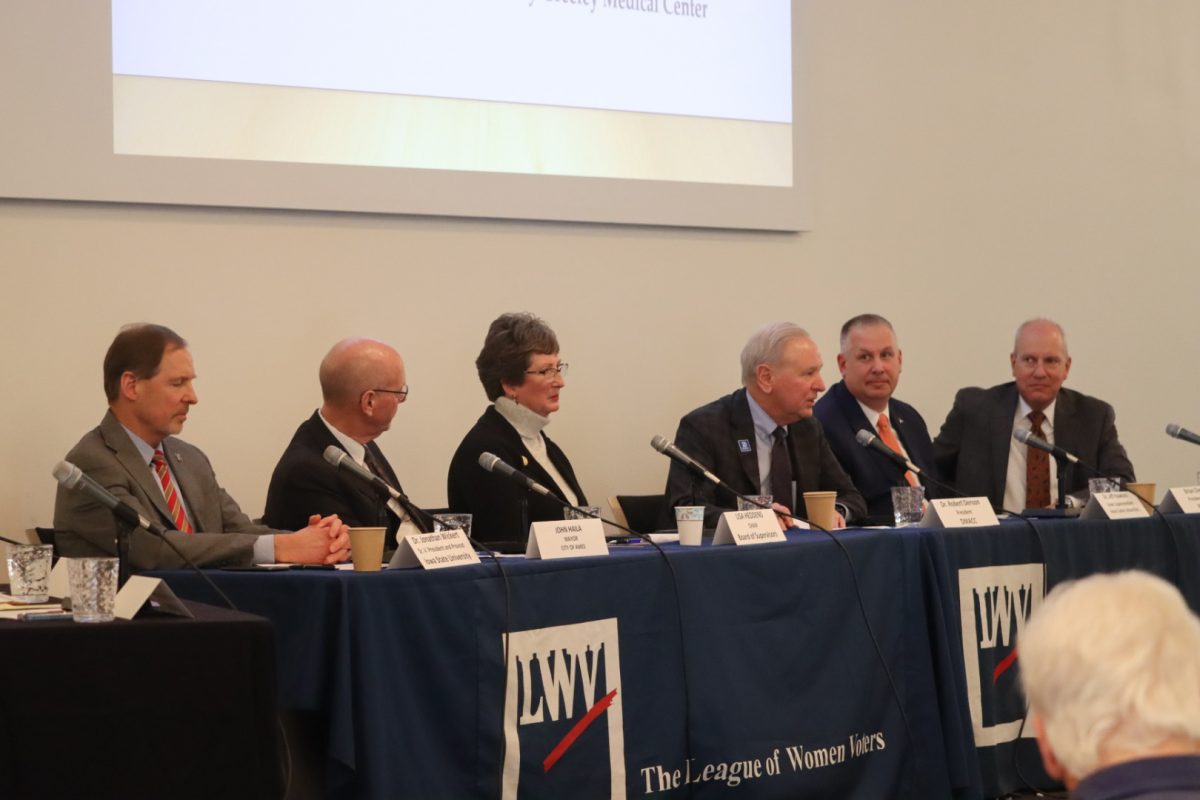AIDS epidemic grips Africa
June 25, 2001
Since its discovery, AIDS has changed the way Americans live.
Safe sex has been widely promoted in an effort to cut down on the number of Americans who are diagnosed with HIV.
But the problem spans the globe and has hit other parts of the world much harder, especially Africa, home to 25 million of the 35 million people currently diagnosed with HIV.
“[AIDS] is soon to become the worst plague in all of African history,” said Salih Booker, executive director of Africa Action. “Already 22 million people have died from AIDS worldwide in the past two decades. Seventeen million of those were African.”
Booker said the increasing availability of medicine in Africa is a good start to controlling the problem.
“The change of hope that came about over the last six months is that the [anti-AIDS] drugs may become available in Africa and other poor regions,” Booker said. “Suddenly it is possible to think about a solution to the AIDS epidemic.”
The goal is that the availability of medications will make the disease something Africans can live with, he said.
“The hope is to make AIDS something more akin to diabetes, where, yes, it is devastating but can become controlled due to medicines,” Booker said.
He said the problem right now is that the medicine is only available to 1 percent of the people living with HIV/AIDS in Africa.
“There is a rich minority in the world that has access to most of the world’s resources, wealth and health care,” Booker said. “Africa is at the bottom of the ladder.”
As an African-American, Shirley Dunlap, associate professor of music, said she has her own concerns.
She said she thinks the United States could easily find a way to avoid providing help to Africa.
“Twenty years and all that has happened is that the epidemic has gotten worse,” she said. “If it were some other country, I think the effort would, in my opinion, be endless.”
Bogadi Mathangwane, president of the African Student Association, said it is very important for Africa to get help financially.
“Money does everything these days,” said Mathangwane, graduate student in water resources from South Africa.
“If we don’t have the medicine for that, then it continues and people will die. If we don’t get help from these western countries, in no time there will be no Africa.”
Booker said the world is looking to the United States to provide help.
“The United States is the richest country in all of human history,” he said. “[President] Bush contributed $200 million to a $10 billion fund to Africa. It is really an insulting amount of money.”
Booker said if the $10 billion could be raised, the AIDS crisis in Africa could be solved.
“With that new fund – if they could raise it – they could do bulk purchasing of medicine, they could distribute medicine, increase health care and increase prevention and education,” he said.
Miranda Mhango, an international student from Africa, said safe sex is encouraged in African schools.
“They show you pictures of people who are sick and have sexually transmitted diseases,” she said. “They hand out condoms and talk to people about going to get condoms at the clinic.”
Booker said the lack of public awareness could be one of the reasons the AIDS epidemic is so bad in Africa.
“[One problem is] the whole issue of denial and unwillingness on the part of the government to recognize the disease as a problem,” he said.
“There has been some reluctance on the part of the government to address these issues.”






